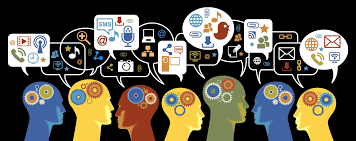Social Media and Your Brain

https://neurogrow.com/what-social-media-does-to-your-brain/
Social Media is heavily known to affect the brain
March 28, 2022
The average person spends over 3 hours on their phone each day, including about 2 and a half hours on social media. While it may seem like a harmless hobby, or a way to kill time, research shows that doing anything repeatedly for extended amounts of time (such as social media) can cause physiological changes in the brain. This brings up the question of, what is social media actually doing to our brains? Social media has the full ability to grab someone’s attention and have them hooked into the app for multiple hours on end. It can scatter the attention of any user and get them off track with everyday tasks. With refresh buttons on just about every social media app out there, information all over the world can be explored in just a few clicks. Whether it be funny pet videos, keeping up on the new dancing trends, or learning about what is going on in our world, Social media platforms make it all easily accessible.
The Hard Reality
Studies have shown that the ability to catch the attention of an individual on social media has a very specific effect on the brain. Two and a half hours may not seem like a long time while scrolling through the internet and getting completely distracted. In the grand scheme of things, two and half hours is the time it takes to run a half marathon, watch any Marvel movie, or even to drive from Thornton to Buenavista, Colorado.
The Numbers
Users of social media have been known to perform worse on cognitive tests, especially ones in which are used to examine the attention and ability to multitask of an individual, compared to those who are on social media platforms less. Heavy users of social media have to spend more time and effort on remaining focused in the face of distraction, and in public school distractions are around every corner. Many researchers state that since social media is so easily accessible and oftentimes can be seen as competing for the attention of any individual who has access; heavy social media users become less able to ignore the distractions in everyday life, not only on social media. Not only does this lead to poorer cognitive performance, but it shrinks parts of the brain linked with maintaining attention. This ability of the brain to change is called neuroplasticity, and it has a big effect on your attention and cognitive function. Research also shows that heavy social media use is linked with memory deficits (especially in your transactive memory). This kind of memory involves deciding what information is important enough to store in your brain and what information can be forgotten and let go of. I do believe that these days, social media is seeming to impact the younger audience more than it affects older audiences. Social media is more common in younger generations and can affect their brain function more.
Social media is a very destructive tool that can affect an individual’s brain in many different aspects of their life. This can include a discretion in academics as well as being able to affect the attention span of someone going through their everyday tasks. If you ever find yourself stuck on social media for long periods of time, begin to think about all of the things that can be taking up that time instead. By limiting the amount of time that is spent on social media, you can maintain the abilities of the brain.


